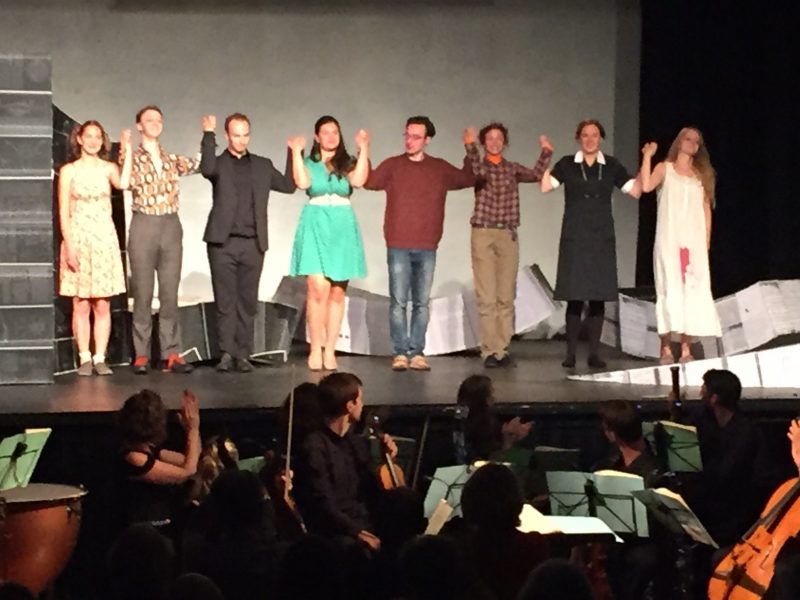Not content with his brilliant operatic offerings at past Festivals, the super-talented Alisdair Kitchen has decided to bring his Euphonia Opera to the Rye Arts Festival 2016 for performances of not one but two totally contrasting works. The final day of the Festival will see Donizetti’s “Don Pasquale” but last Saturday, September 17 at the Milligan Theatre, those who were lucky enough to be there saw and heard a memorable performance of Benjamin Britten’s chamber opera “The Turn of the Screw” (1954).
This is based on the ghost story of the same name by Henry James, whose connection with Rye is well-known. Christopher Stark, the prize-winning conductor, who replaced, at very short notice, the indisposed Helgi R Ingvarrson, showed throughout his unobtrusive mastery of every aspect of Britten’s remarkable work.
The Euphonia orchestra played magnificently to support the singers and the action, in an opera where the integration of every aspect is even more vital than usual. All six singers excelled themselves: Josephine Goddard (the governess) portrayed with utter conviction someone in a terrifying and unexpected situation who is determined to see things through and assert the supremacy of goodness, while Elspeth Marrow (Mrs Grose) depicted with authenticity the dilemma of a subordinate who has lacked the will to combat wrong-doing but who is now committed to making amends.
As the ghosts, Louise Fuller (Miss Jessel) and William Wallace (Peter Quint) made the clear differentiation between the former as victim and the latter as sinister abuser utterly compelling, while Wallace ensured that his unsettling, even frightening characterisation of Quint was as unlike his harmless prologue as could be. Perhaps most extraordinary of all were Anna Cavaliero (Flora) and Isabelle Atkinson (Miles) as the children over whom good and evil contend throughout. Their portrayals of two confused and frightened youngsters, for whose souls living guardians and ghostly abusers vie for power were outstandingly well-realised.
The production by Alisdair Kitchen was full of arresting visual details, with many instances of Miles or Flora physically between, and struggled over, by a good mortal on one side and a malign ghost on the other. Two moments stand out: one at the end of the first act when Quint, Miss Jessel, Flora and Miles are centre stage in a horrible parody of a “normal” family and the other when the governess is being assailed in her dreams by the evil spirits. In the latter, Myfanwy Piper, sometimes felt to be an inadequate librettist, has pulled off a master-stroke, something not available to Henry James in his 1898 story. She has imported into the text at this point, a line from WB Yeats’s poem “The Second Coming”, not written until 1919. When Quint and Miss Jessel repeatedly assert that “the ceremony of innocence is drowned”, they comment in a uniquely powerful way on the whole theme of the opera.
Some felt that the cast moving the abstract scenery was a little distracting, but this was more than off-set by the sinister shadows cast on the back wall of the set. The singing, playing, conducting and direction of this production were each of the highest standard, but it was the convincing unification of every contributing element that made this version of Britten’s “The Turn of the Screw” simply unforgettable.
Photo: Seana Lanigan



